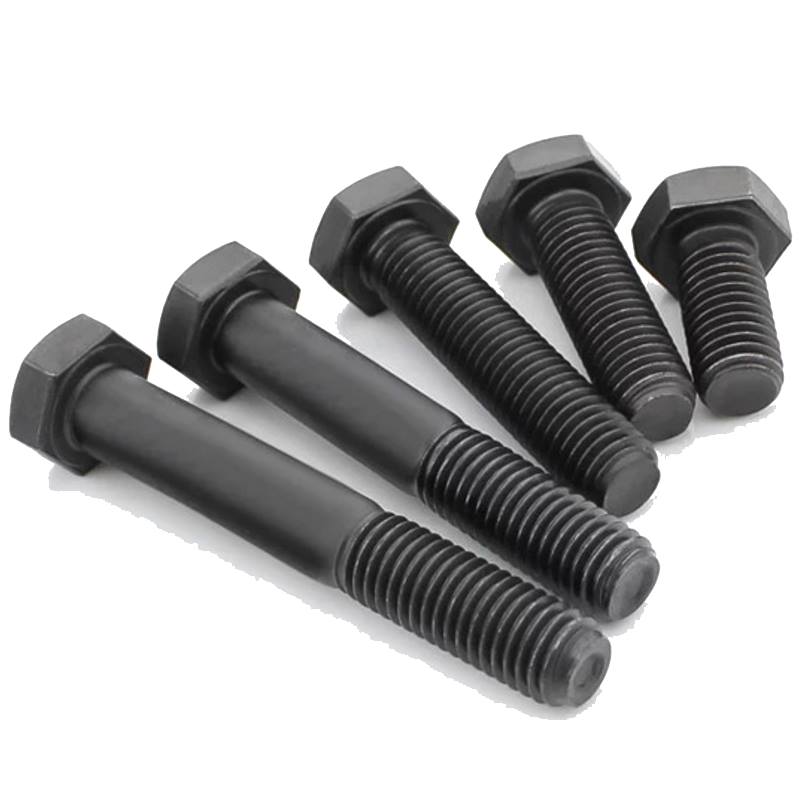Finding Reliable Manufacturers of 12 Inch Carriage Bolts for Your Construction Needs and Projects
Aug . 14, 2024 09:56 Back to list
Finding Reliable Manufacturers of 12 Inch Carriage Bolts for Your Construction Needs and Projects
The Importance of Quality in 12 Inch Carriage Bolts Insights from Manufacturers
In the world of construction and engineering, the right fasteners can make all the difference. Among these, 12 inch carriage bolts stand out for their versatility and reliability. Carriage bolts are designed to hold materials together securely, and their unique features make them particularly suitable for various applications, from carpentry to metalworking. This article explores the significance of quality in 12 inch carriage bolts and what manufacturers consider when producing these essential components.
Understanding Carriage Bolts
Carriage bolts are characterized by their round heads and square necks, which prevent them from turning when tightened. This design allows for a secure grip in unturned surfaces, making them ideal for use in wood and other materials that require a sturdy fastening solution. The 12 inch length is particularly sought after for applications that demand significant strength and support, such as building structures, bridges, and outdoor furniture.
The Role of Manufacturers
The manufacturing process of 12 inch carriage bolts is intricate, involving various stages that are crucial for ensuring the final product's quality. Manufacturers begin with selecting the appropriate raw materials, which often include carbon steel or stainless steel. The choice of material is critical as it affects the bolt's strength, corrosion resistance, and overall durability.
Once the materials are selected, the manufacturing process involves forming, cutting, and treating the metal. For instance, heat treatment is often employed to enhance the tensile strength of the bolts, ensuring they can withstand high levels of stress without deforming. Additionally, surface treatments, such as galvanization or coating, are applied to prevent rust and wear, particularly for bolts intended for outdoor use.
Quality Control Measures
12 inch carriage bolts manufacturers

Quality control is a pivotal aspect of the production process for 12 inch carriage bolts. Reputable manufacturers implement rigorous testing protocols to ensure that their products meet industry standards and customer specifications. This may include tensile tests, hardness tests, and corrosion resistance testing. Manufacturers may also engage in comprehensive inspections throughout the production process to catch any defects early on.
Moreover, adherence to industry certifications and standards, such as ISO 9001 or ASTM specifications, signifies a commitment to quality. Customers often look for these certifications as a guarantee that the carriage bolts they are purchasing will perform reliably in their applications.
Applications of 12 Inch Carriage Bolts
The applications of 12 inch carriage bolts are vast. They are commonly used in building construction for securing timber beams together, constructing fences, and assembling outdoor structures like gazebos and pergolas. Moreover, their robust nature makes them ideal for heavy-duty applications, including machinery assembly and vehicle manufacturing.
In woodworking, these bolts are favored for projects requiring a strong hold without the risk of splitting the wood. Their aesthetic appeal—due to the rounded head—also makes them a popular choice for visible applications where appearance matters.
Conclusion
As the demand for high-quality fastening solutions continues to grow, manufacturers of 12 inch carriage bolts play a crucial role in meeting industry needs. By focusing on quality materials, a meticulous manufacturing process, and stringent quality control, they ensure that their products stand the test of time and perform effectively in varied applications. For anyone in need of reliable fastening solutions, partnering with reputable manufacturers of 12 inch carriage bolts is essential to achieving durability and security in their projects. Whether in construction, woodworking, or metalworking, the confidence offered by these fasteners can significantly influence project outcomes and long-term structural integrity.
Latest news
-
Durable Bolts for Lawn Mower Handle - Top Supplier & Manufacturer
NewsAug.22,2025
-
High-Quality Bolts for Lawn Mower Handle Supplier & Manufacturer
NewsAug.21,2025
-
Reliable Axle Nuts Supplier | High-Quality Automotive Parts
NewsAug.19,2025
-
Premium Wire Bolts Suppliers | Durable & Reliable Fasteners
NewsAug.18,2025
-
Leading Metric Wood Screw Companies & Manufacturers
NewsAug.17,2025
-
Top Wire Bolts Suppliers - Quality & Durable Fasteners
NewsAug.15,2025
